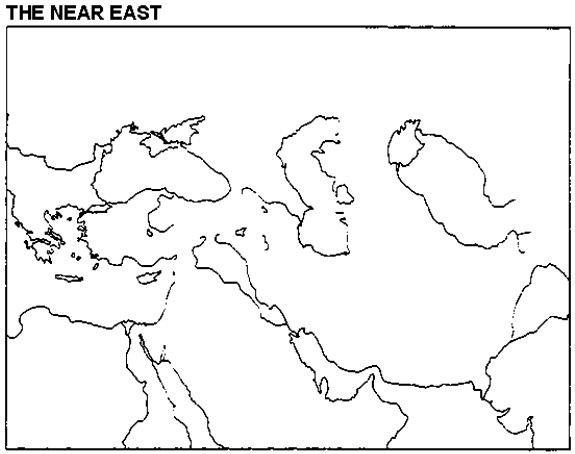Exam 2: The Hebrews: a New View of God and the Individual
Exam 1: The Ancient Near East: the First Civilizations87 Questions
Exam 2: The Hebrews: a New View of God and the Individual92 Questions
Exam 3: The Greek City-State: Democratic Politics78 Questions
Exam 4: Greek Thought: From Myth to Reason77 Questions
Exam 5: The Hellenistic Age: Cultural Diffusion79 Questions
Exam 6: The Roman Republic: City-State to World Empire76 Questions
Exam 7: The Roman Empire: a World-State91 Questions
Exam 8: Early Christianity: a World Religion79 Questions
Exam 9: The Heirs of Rome: Byzantium, Islam, and Latin Christendom97 Questions
Exam 10: The High Middle Ages: Vitality and Renewal83 Questions
Exam 11: The Flowering of Medieval Culture: the Christian Synthesis78 Questions
Exam 12: The Late Middle Ages: Crisis and Dissolution77 Questions
Exam 13: The Renaissance: Transition to the Modern Age89 Questions
Exam 14: The Reformation: the Shattering of Christian Unity85 Questions
Exam 15: European Expansion: Economic and Social Transformations89 Questions
Exam 16: The Rise of Sovereignty: Transition to the Modern State85 Questions
Exam 17: The Scientific Revolution: the Universe Seen As a Mechanism85 Questions
Exam 18: The Age of Enlightenment: Reason and Reform89 Questions
Select questions type
Instructions: Please define the following key terms.Show Who? What? Where? When? Why Important?
-Exodus
(Essay)
4.8/5  (37)
(37)
Among the ancient Jews, there existed a dynamic tension between parochialism and
(Multiple Choice)
4.9/5  (39)
(39)
Under Moses, the central force in the life of the Hebrews became
(Multiple Choice)
4.8/5  (37)
(37)
Which of the following did not occur during the three hundred years following the Israelite return to Canaan from Egypt?
(Multiple Choice)
4.9/5  (38)
(38)
The Hebrew and Greek worldviews differed in all of the following ways except the
(Multiple Choice)
4.8/5  (26)
(26)
The Hebrews believed that God's Law did all of the following except
(Multiple Choice)
4.9/5  (36)
(36)
Chapter One stated that the "...Greeks and Hebrews rejected or transformed the older Near Eastern traditions to create new points of departure for the human mind." On the basis of both Chapter One and Chapter Two, we can conclude that
(Multiple Choice)
4.9/5  (28)
(28)
Instructions: Please write a thorough, well-organized essay to answer each question.
-Explain the relationship between the old Near Eastern civilization (Mesopotamia and Egypt), the Hebrews, and the West.
(Essay)
4.9/5  (44)
(44)
Under which of the following kings did Israel reach the heights of its power and prosperity?
(Multiple Choice)
4.8/5  (38)
(38)
How did the Hebrew view of history differ from that of the Mesopotamians and the Egyptians?
(Multiple Choice)
4.9/5  (33)
(33)
Instructions: Please define the following key terms.Show Who? What? Where? When? Why Important?
-Hebrews, Israelites, Jews
(Essay)
4.8/5  (38)
(38)
Instructions: Please define the following key terms.Show Who? What? Where? When? Why Important?
-monotheism
(Short Answer)
4.8/5  (37)
(37)
Instructions: Please use this outline map of the Near East to answer the question(s).  -Locate and clearly mark the kingdoms of Israel and Judah after the death of Solomon.Do the same for the city of Jerusalem.
-Locate and clearly mark the kingdoms of Israel and Judah after the death of Solomon.Do the same for the city of Jerusalem.
(Short Answer)
4.8/5  (46)
(46)
Instructions: Please define the following key terms.Show Who? What? Where? When? Why Important?
-Isaiah
(Essay)
4.8/5  (33)
(33)
Which of the following pairs do not consist of related terms?
(Multiple Choice)
4.8/5  (38)
(38)
According to the author, the Hebrews' new conception of God led to a new conception of self by
(Multiple Choice)
4.7/5  (33)
(33)
Showing 61 - 80 of 92
Filters
- Essay(0)
- Multiple Choice(0)
- Short Answer(0)
- True False(0)
- Matching(0)